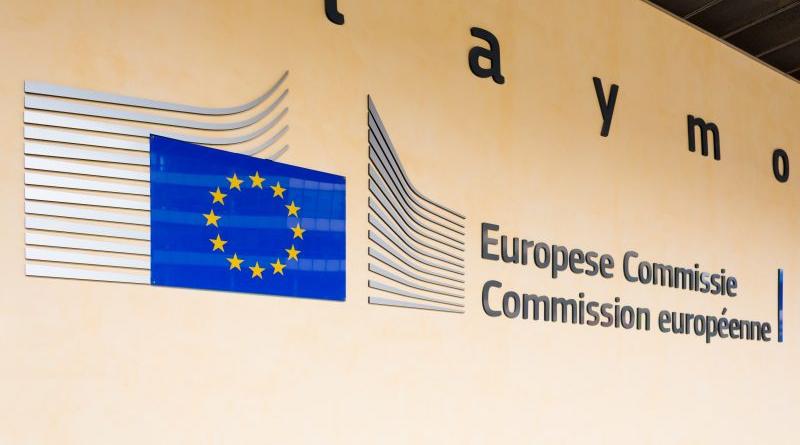Germany welcomes EU’s new green hydrogen rules, activists divided

The European Commission published a long-awaited set of rules on Monday (13 February) defining what can be considered as “renewable” hydrogen, drawing praise from industry and mixed reactions from campaigners.
Hydrogen production is an energy-hungry process requiring substantial amounts of electricity to power the water electrolysers generating the gaseous fuel.
To prevent hydrogen production from capturing scarce renewable energy resources, the European Commission was tasked to design rules requiring that green hydrogen only uses “additional” amounts of renewable electricity.
“Additionality ensures electrolysers don’t raise prices for grid electricity users because it matches the increase in demand with an increase in renewable supply,” explains Gniewomir Flis, a hydrogen analyst.
After years of delay caused by intense lobbying from EU countries and industry, these rules have now finally been adopted, and were published by the European Commission on Monday (13 February).
The key principle is that hydrogen production must be matched by additional renewable energy production on an hourly basis.
However, this criteria will apply only as of 2030. Until then, the correlation will apply on a monthly basis, a move aimed at allowing sufficient time for the EU’s nascent hydrogen industry to take off.
France and Sweden came out as last-minute winners, with a special derogation allowing countries with a low-carbon electricity mix (i.e.: nuclear) to derogate from the additionality principle, provided they can demonstrate an equivalent amount of renewables was used, via a system of Power Purchasing Agreements (PPAs). This can come from existing renewable energy installations, not necessarily additional ones.
Germany hails ‘important step’ for hydrogen market
The EU rules are an “important step for market ramp-up of green hydrogen,” commented Germany’s economy and climate action ministry in a joint statement issued on Monday.
“The German government has strongly advocated the swift implementation of appropriate uniform European criteria,” the two ministers said, adding that Germany “welcomes the fact that the European Commission has now adopted the legal act.”
The hydrogen industry also welcomed the publication of the new rules, even though it criticised its bureaucratic requirements.
“The long overdue delegated acts are the key element for the market ramp-up of hydrogen and hydrogen-based synthetic fuels,” said Ralf Diemer, CEO of the eFuel Alliance, a lobby group representing the synthetic fuel industry.
When used in transport, e-fuels such as hydrogen are referred to as Renewable Fuels of Non-Biologic Origin (RFNBOs), a term coined in the EU’s renewable energy directive.
But according to Diemer, the published rules are overly “bureaucratic and sometimes impractical,” meaning that “the production of RFNBOs will only be possible in a few European regions”.
Jorgo Chatzimarkakis, secretary general of industry group Hydrogen Europe, welcomed their adoption nonetheless. “A far-from-perfect regulation is better than no regulation at all,” he commented.
Both said the EU needed to act quickly, or otherwise risk being overtaken by the United States where the Inflation Reduction Act offers generous tax credits to companies investing in the hydrogen economy.
To enter into force, the rules must now be rubberstamped by EU countries and the European Parliament, which have two months to scrutinise the proposal.
Legislators only have the possibility to reject the proposed rules but not to amend them. A vote against the proposal seems unlikely, both in Parliament and in the EU Council of Ministers, the body representing the 27 EU member states.
Green activists divided
Activists were left disappointed by the adopted rules, which leaves the door open to hydrogen produced from fossil fuels until 2030.
“Unfortunately, the text leaves too much space for greenwashing in the short term, with a risk of increased emissions due to hydrogen production,” commented Marta Lovisolo from Bellona, a Norwegian NGO.
While welcoming the 2030 kick-off date for the additionality principle, Lovisolo said “this won’t come fast enough to our taste” and criticised the special derogation granted for French nuclear electricity, which “will be able to be accounted as renewable.”
“The European Commission’s plan to make so-called ‘green’ hydrogen with electricity from fossil gas or coal power plants is surely the gold standard of greenwashing,” commented Dominic Eagleton, senior gas campaigner at Global Witness.
Transport and Environment (T&E), a clean mobility campaign group, was more positive though and called on the legislators “to swiftly adopt these delegated acts.”
The new EU rules will “kickstart investments in hydrogen and e-fuels, which are crucial for decarbonising our ships, planes and heavy industry,” said Geert Decock, electricity and energy manager at T&E.
cover: The EU's new hydrogen production rules, finally adopted, were met with both approval and accusations of "greenwashing" by activists. [Shutterstock/Andrey_Kuzmin]





